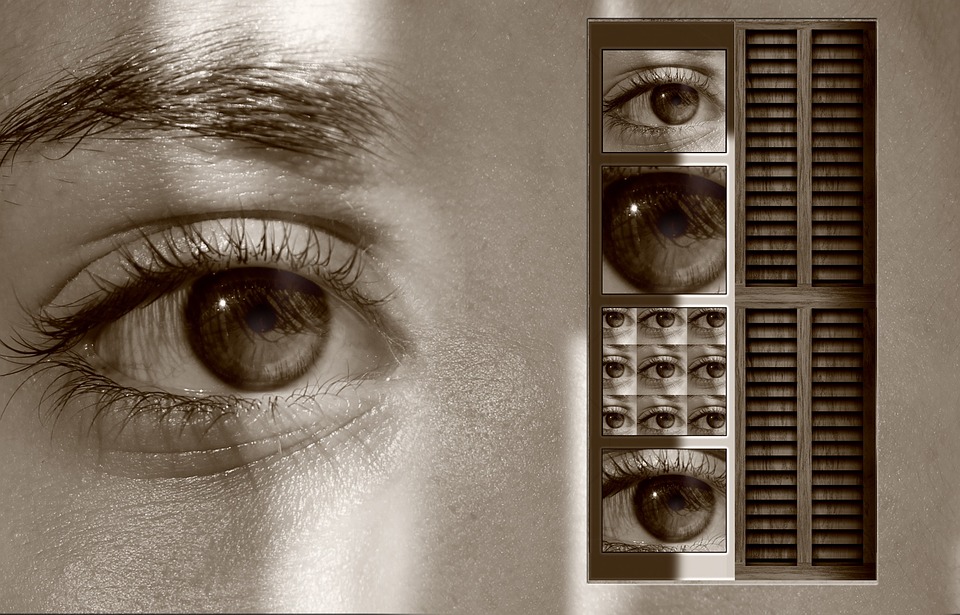
by DBT Skills | Mar 21, 2024 | DBT Therapy
[ad_1]
Validation is a powerful tool in the realm of therapy, particularly in Dialectical Behavior Therapy (DBT). Validation is the act of recognizing and acknowledging a person’s thoughts, feelings, and experiences as valid and understandable. It can be a transformative force in healing, providing a sense of validation and acceptance that can help to soothe emotional pain and build self-esteem. At DBT London, we believe in the power of validation and have seen first-hand the positive impact it can have on our clients.
One of the key principles of DBT is that validation is essential for growth and change. By validating a person’s thoughts and feelings, we are showing them that they are heard and understood. This can help to build trust and rapport in the therapeutic relationship, which is essential for progress in therapy. In DBT, validation is often used to help clients learn to regulate their emotions and cope with difficult situations.
Here are some top tips from DBT London for unlocking the power of validation in therapy:
1. Listen actively: One of the most important aspects of validation is active listening. This means paying attention to what the person is saying, demonstrating empathy, and reflecting back what you hear. This shows the person that you are truly listening and understanding their experience.
2. Validate emotions, not actions: It’s important to differentiate between validating a person’s emotions and validating their actions. You can validate someone’s feelings without condoning or endorsing their behaviors. This can help the person feel understood without feeling judged.
3. Be genuine: Authenticity is key in validation. It’s important to be sincere in your validation and communicate in a genuine and caring manner. This can help to build trust and foster a supportive therapeutic relationship.
4. Use validation as a tool for change: Validation can be a powerful motivator for change. By validating a person’s emotions and experiences, you can help them to explore new ways of coping and responding to difficult situations. Validation can also help to build self-esteem and self-acceptance, which are essential for growth and healing.
At DBT London, we have seen the transformative power of validation in therapy. By using validation as a tool for healing, we have helped many clients to build emotional resilience, cope with distress, and develop a greater sense of self-acceptance. If you are struggling with emotional pain or difficult emotions, consider seeking therapy that incorporates validation as a central component. Unlock the power of validation and start your journey towards healing today.
[ad_2]

by DBT Skills | Feb 1, 2024 | DBT Therapy
[ad_1]
Validation is a powerful tool that can help strengthen relationships and improve communication. It involves acknowledging and accepting a person’s thoughts, feelings, and experiences without judgment. In Dialectical Behavior Therapy (DBT), validation is a key component of building strong and healthy relationships.
Here are five DBT tips for unlocking the power of validation and fostering stronger connections with others:
1. Practice active listening: Active listening is a fundamental aspect of validation. It involves giving your full attention to the speaker, maintaining eye contact, and showing empathy through nonverbal cues such as nodding and facial expressions. Avoid interrupting or offering unsolicited advice, and instead, focus on understanding the person’s perspective.
2. Reflect back emotions: Reflecting back emotions is a powerful validation technique that involves mirroring the emotions the other person is expressing. For example, if a friend tells you they are feeling anxious about an upcoming presentation, you might respond by saying, “It sounds like you’re feeling really nervous about the presentation.” This shows that you are attuned to their feelings and validates their experience.
3. Use validating language: The words we use can have a significant impact on how others feel understood and supported. Using validating language, such as “I can understand why you feel that way” or “It makes sense that you would be upset,” demonstrates empathy and validation. Avoid dismissive language or minimizing someone’s experiences.
4. Validate personal experiences: Everyone’s experiences are valid and worthy of acknowledgment. In a relationship, it’s important to validate the other person’s unique perspectives and experiences, even if they differ from your own. This can help foster a sense of acceptance and understanding within the relationship.
5. Be mindful of nonverbal cues: Nonverbal communication plays a critical role in validation. Pay attention to your body language, tone of voice, and facial expressions to ensure they convey empathy and understanding. Avoid dismissive gestures or expressions that may undermine the validation process.
These DBT tips for validation can help you unlock the power of validation and build stronger, more meaningful relationships. By practicing active listening, reflecting back emotions, using validating language, validating personal experiences, and being mindful of nonverbal cues, you can create an environment of acceptance and understanding in your relationships. Incorporating validation into your interactions can lead to improved communication, greater empathy, and stronger connections with others.
[ad_2]
by Dr. Phil | Jan 6, 2024 | DBT Therapy
[ad_1]
The Power of Validation in Dialectical Behavior Therapy (DBT): Why It’s so Crucial
Dialectical Behavior Therapy (DBT) is a type of cognitive-behavioral therapy developed by Dr. Marsha Linehan in the late 1980s. DBT is a highly effective treatment for individuals with borderline personality disorder, as well as other mental health conditions such as depression, anxiety, eating disorders, and substance abuse.
One of the core components of DBT is validation. Validation is the act of acknowledging and accepting a person’s thoughts, feelings, and experiences as valid and understandable. It is a crucial aspect of therapy that can have a profound impact on an individual’s well-being and treatment outcomes.
Validation is important in DBT for several reasons. First and foremost, it helps to build a strong therapeutic alliance between the therapist and the individual in treatment. When a person feels validated and understood by their therapist, they are more likely to trust and engage in the therapeutic process. This, in turn, can lead to better treatment adherence and outcomes.
Furthermore, validation can help individuals regulate their emotions and reduce distress. When a person’s experiences are validated, they feel heard and understood, which can help to decrease feelings of shame and self-doubt. This, in turn, can lead to a reduction in emotional dysregulation and an increase in emotional well-being.
Validation also helps individuals develop a greater sense of self-acceptance and self-compassion. When someone’s experiences are validated, they feel affirmed and accepted for who they are, which can lead to an increase in self-esteem and a greater ability to tolerate distress.
In DBT, therapists are trained to use specific validation skills to help individuals feel understood and accepted. These skills include reflective listening, acknowledging the person’s emotions, and validating their experiences without judgment or criticism.
Overall, the power of validation in DBT cannot be overstated. It is a crucial component of therapy that can have a significant impact on an individual’s well-being and treatment outcomes. When individuals feel validated and understood, they are more likely to engage in therapy, regulate their emotions, and develop greater self-acceptance. As such, validation is an essential tool for therapists to use in the treatment of individuals with mental health conditions.
[ad_2]
by Dr. Phil | Nov 21, 2023 | DBT Therapy
[ad_1]
Dialectical Behavior Therapy (DBT) is a type of cognitive behavioral therapy that is specifically designed to help individuals with emotional regulation and interpersonal effectiveness. Validation is a crucial component of DBT, and understanding its role is important for both therapists and clients.
Validation in DBT refers to the therapist’s acknowledgment and acceptance of the client’s internal experiences, emotions, thoughts, and behaviors. It involves recognizing and empathizing with the client’s feelings, without necessarily agreeing with their behavior or choices. This validation can help clients feel understood, accepted, and supported, which in turn can facilitate their progress in therapy.
One of the key aspects of validation in DBT is the concept of dialectics, which involves finding a balance between acceptance and change. It is important for therapists to validate the client’s current experience while also encouraging them to work towards change. This can be a delicate balancing act, as the therapist needs to validate the client’s feelings while also challenging their maladaptive behaviors.
The role of validation in DBT is multifaceted. First and foremost, it helps to create a therapeutic relationship based on trust, understanding, and empathy. By validating the client’s experiences, the therapist can help them feel heard and supported, which is crucial for building a strong therapeutic alliance. This, in turn, can help to reduce feelings of shame and invalidation that clients may experience in their daily lives.
Additionally, validation can be a powerful tool for teaching clients to recognize and regulate their emotions. When clients feel validated, they are more likely to be open to exploring their emotions and learning healthy coping strategies. This can be particularly beneficial for individuals with borderline personality disorder, who often struggle with intense and fluctuating emotions.
Validation can also help to reduce feelings of defensiveness and resistance in clients. By acknowledging and accepting the client’s experiences, the therapist can create a safe space for them to explore and address their challenges. This can help to facilitate a more open and productive therapeutic process.
Finally, validation in DBT can help to increase the client’s self-esteem and self-acceptance. When clients feel understood and accepted by their therapist, they are more likely to develop a more positive view of themselves and their experiences. This can be a crucial component of the healing process, particularly for individuals who have experienced trauma or chronic invalidation in their lives.
In conclusion, validation plays a critical role in Dialectical Behavior Therapy. By acknowledging and accepting the client’s internal experiences, therapists can help to create a supportive and empowering therapeutic environment. This can facilitate the client’s emotional regulation, interpersonal effectiveness, and overall well-being. Understanding the role of validation in DBT is essential for therapists and clients alike, as it can be a powerful tool for fostering healing and growth.
[ad_2]


